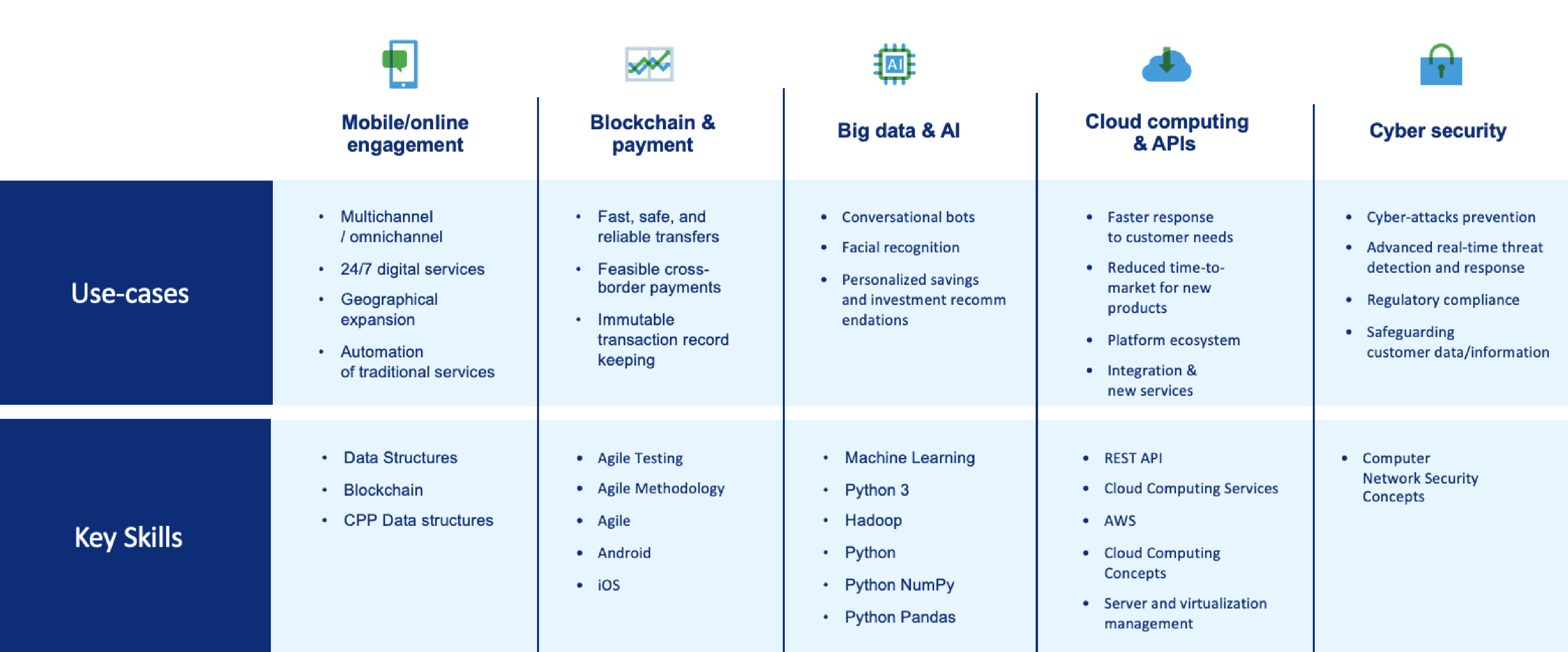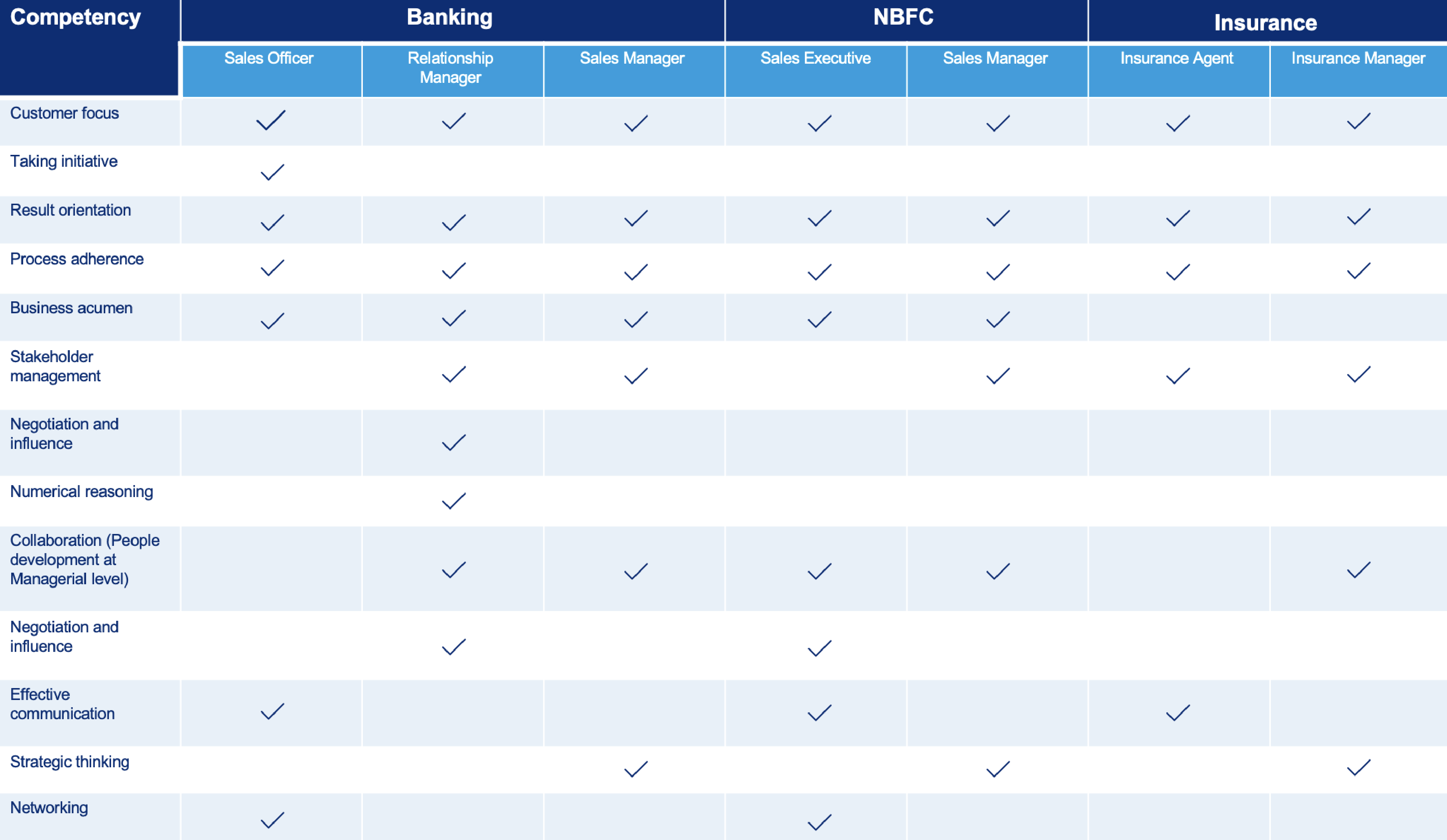The BFSI industry is rapidly growing and experiencing a transformation in sales and tech processes. Explore ongoing hiring trends in the BFSI industry to nurture, acquire, and leverage tech and sales talent for optimized and efficient processes.
Sourcing
Sourcing in the BFSI sector today involves using social media and digital hiring techniques that are highly interactive and dedicated. Hiring managers are using these techniques to focus on candidates with the ability to solve specific industry challenges with dedicated skill sets.
Selection
Companies are increasingly using tools like psychometric assessments, pre-employment tests, etc., to gauge talent accurately. These dedicated assessments evaluate candidates’ decision-making, emotional intelligence, psychometric intelligence, behavior, and other similar traits. As a result, HR managers are able to make informed hiring decisions by assessing candidate fitment and willingness for the job position.
Development and engagement
Along with hiring and sourcing the right tech and sales talent, the industry is focusing on reskilling existing talent. The HR managers are building innovative learning and development (L&D) programs to engage a multi-generational workforce. This blend of different age groups workforce helps drive business success in key areas, such as innovation, compliance, technology, customer service, etc.









 Behavioral Competencies
Behavioral Competencies Cognitive Competencies
Cognitive Competencies Coding Competencies
Coding Competencies Domain Competencies
Domain Competencies





































Would you like to comment?